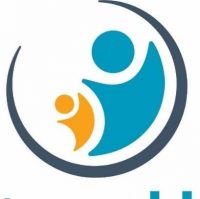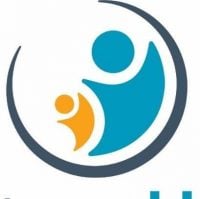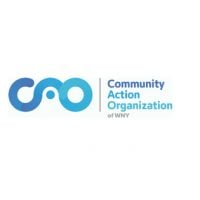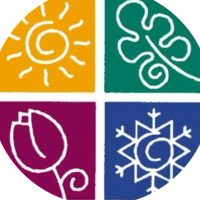
Catholic Charities - Buffalo
Drug Rehab Center in Buffalo, New York
- Opioid Addiction
- Dual Diagnosis
- Drug Addiction
- Alcoholism
Catholic Charities of Buffalo is a comprehensive drug and alcohol rehabilitation center that provides physical, mental, and spiritual support to those struggling with addiction in the form of group, family, and individual therapy, drug rehab, and long-term residential care.
Multiple patients have reported Catholic Charities - Buffalo as permanently closed.
Research other rehabs in Buffalo, New York, or get help finding an open facility.
Our experts will find you an alternative facility.
(888) 674-0062 24/7 Free, Confidential, Expert HotlineAbout Catholic Charities - Buffalo in New York
Catholic Charities of Buffalo is a drug and alcohol rehabilitation center that offers treatment and counseling services to those struggling with addiction. The center provides comprehensive care and treatment options that aim to address the physical, mental, and spiritual aspects of recovery. The team of experienced professionals at Catholic Charities of Buffalo are dedicated to providing patients with the high-quality care and support they need to break the cycle of addiction and reach their recovery goals.
At Catholic Charities of Buffalo, treatment plans are tailored to the individual and take the patient’s spiritual, physical, and emotional needs into consideration. The range of services includes group therapy, family therapy, couples therapy, individual therapy, drug rehab, and residential long term care. The staff of Catholic Charities of Buffalo strive to create a supportive and nurturing environment in which those struggling with addiction can find the support they need to recover.
Genders
Ages
Modality
Additional
Conditions and Issues Treated
Opioid addiction is when someone becomes addicted to opioids. This can happen quickly due to any opioid use. Opioid withdrawal can be uncomfortable and lead the user to continue using even if they want to quit. It’s best to receive inpatient treatment for detoxification.
Even if a person doesn’t need inpatient treatment, it’s recommended to start rehabilitation or at least some kind of outpatient treatment. This is because the withdrawal symptoms from opioids can be uncomfortable and unpleasant, to the point that a person could end up using again or worse.
Detoxification should be done to break the physical addiction of opioids. This can be done with opioid replacement therapy, medication-assisted therapy, or a more traditional detoxification program. Intensive outpatient treatment is a form of addiction care that allows patients to continue living at home while undergoing treatment. This type of care is appropriate for patients who have been treated in residential treatment programs. Intensive outpatient programs include regular visits to the facility providing therapy, and patients gradually return to their routine life. IOP benefits most when patients have a supportive family member or friend to help them recover.
The first step to getting into an intensive outpatient program is to attend a detoxification facility. Detoxification facilities are designed to remove substances from the body safely. The patient will attend sessions designed to help them understand their addiction and its impact on their lives. While in an intensive outpatient program, therapy sessions are scheduled three to five times per week, with the patient attending no more than two sessions in one day.
Levels of Care Offered
This center offers a variety of custom treatment tailored to individual recovery. Currently available are Drug Rehab, with additional therapies available as listed below.
Therapies & Programs
Individual Therapy is a crucial component of addiction recovery. Therapists work with patients to identify the root of their addiction and figure out how to better handle the issues that led to them using drugs. Individual Therapy is one on one sessions where people meet with their therapist. Individual therapy provides a safe space for people to open up and discuss personal and sensitive topics which they may not feel comfortable discussing in a group setting.
In this type of therapy, therapists can develop specific solutions for each patient, which helps speed up their recovery process. In addiction recovery, therapy is a crucial part. It allows patients to go deep into their core issues and discover how those problems can be better handled now. Therapy can be performed in individual sessions as well as group settings. In individual therapy for addiction, the patient meets with the therapist one-on-one to focus on the underlying issues of addiction and come up with solutions to prevent future abuse.
Addiction can take a heavy toll on relationships, damage the trust and intimacy that was once there. Couples therapy at Catholic Charities - Buffalo helps to rebuild the trust and intimacy that has been damaged. An intimate relationship with a drug addict is not healthy for children or anyone in the family. Therapist help to rebalance family roles and create a healthier environment after rehab in Buffalo, NY.
Family therapy is a crucial part of drug treatment and getting sober. It is one of the most effective ways to help addicts stay on the path to long-term sobriety. One of the most important parts of family therapy is the relapse prevention plan. During treatment, therapists and doctors will often sit down with the addict and their family to develop a plan if the addict ever feels like they want to use again. This plan should involve steps the addict and family can take together to prevent them from relapsing in the future.
An addict’s family can play a vital part in helping them to avoid relapse because they can spot the warning signs and help them get back on track before it becomes too much of a problem. Family therapy is one of the most effective ways to help addicts stay on the path to long-term sobriety.
Group Therapy is employed by drug treatment centers like Catholic Charities - Buffalo to provide the recovering addict with a platform to talk about their feelings and experiences. It also provides for an opportunity to learn from other addicts who have successfully overcome their addiction. It is recommended that all group members be recovering addicts for this type of therapy to work.
Catholic Charities of Buffalo Associated Centers
Discover treatment facilities under the same provider.
- Monsignor Carr Institute - Outpatient in Buffalo, NY
- Monsignor Carr Institute OP in Buffalo, NY
- Catholic Charities of Buffalo - Substance Abuse Outpatient Clinic in Buffalo, NY
- Catholic Charities of Buffalo - Substance Abuse Services in Buffalo, NY
Learn More About Catholic Charities of Buffalo Centers
Additional Details
Specifics, location, and helpful extra information.
Buffalo, New York 14214 Phone Number(716) 862-0367 Meta DetailsUpdated November 25, 2023
Staff Verified
Catholic Charities - Buffalo Patient Reviews
There are no reviews yet. Be the first one to write one.
Buffalo, New York Addiction Information
More than 2 million New Yorkers are currently suffering from some type of substance abuse and many of those are minors. Alcohol abuse, in particular, is prevalent among those underage. As a result of the high prices and regulation of prescription drugs, many New Yorkers turn to heroin instead. This has led to a serious heroin epidemic in the state.
10.8% of New Yorkers aged 12-17 reported using an illicit drug. In Buffalo, NY, the number of drug overdose deaths increased from 33 in 2015 to 70 in 2016. Methamphetamine use is rising in Buffalo, with more meth seized in 2017 than any other year on record. Buffalo is home to several treatment facilities. Treatment typically begins with a detoxification process, followed by individual and group therapy.
Treatment in Nearby Cities
- Ithaca, NY (123.7 mi.)
- Oneida, NY (161.7 mi.)
- Hornell, NY (73.3 mi.)
- Monroe, NY (264.3 mi.)
- Ridgewood, NY (297.7 mi.)
Centers near Catholic Charities - Buffalo
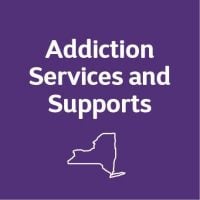

The facility name, logo and brand are the property and registered trademarks of Catholic Charities - Buffalo, and are being used for identification and informational purposes only. Use of these names, logos and brands shall not imply endorsement. RehabNow.org is not affiliated with or sponsored by Catholic Charities - Buffalo.

